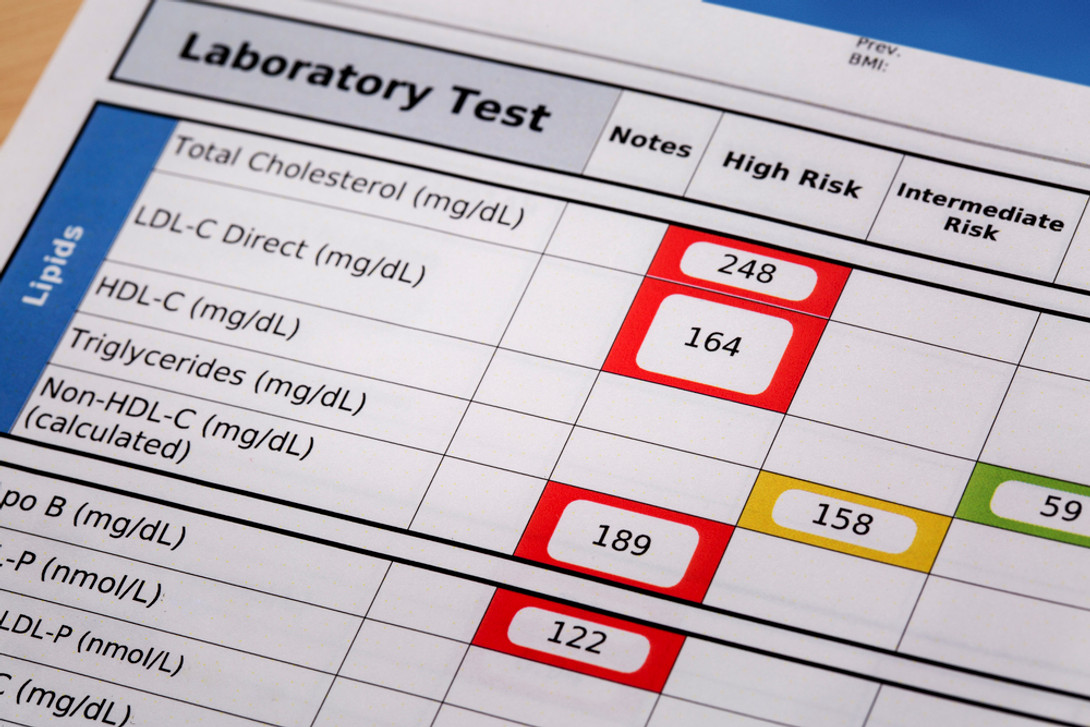This American Heart Month, we’re highlighting the importance of cardiovascular health and spreading awareness about the prevalence of heart disease in adults across the country. To keep tabs on your own heart health, the American Heart Association recommends cholesterol screenings every four to six years for normal-risk adults, and more often for those with elevated risk for heart disease and stroke.
You should always consult with your healthcare provider for specific questions about what your blood test results mean for your overall heart health. But, in this guide, we’ll cover some of the main abbreviations and terms you’ll find on your blood test results to help you decipher the vital information that they contain.
Common Blood Test Components
Most of the time, a blood test will consist of three main components: complete blood count, metabolic panel, and lipid panel.
When you get your results back, the findings from each of these tests may be compiled in one list rather than broken into individual components. But, it’s still helpful to know what your blood is being tested for. Below, we’ll dive deeper into what each of these three blood test components covers.
Complete Blood Count
According to the Mayo Clinic, the importance of the CBC test is to assess the overall health of patients and detect underlying conditions like infection, anemia, or leukemia. The complete blood count (CBC) provides the total count of each of these blood cells:
- Red blood cell count (RBC): The cells that carry oxygen through the body
- White blood cell count (WBC): Crucial cells for fighting infection
- Platelet count: Important cells for blood clotting
This component may also include sub-tests for:
- Hematocrit (Hct): Measures the percentage of red blood cells in the total volume of blood tested
- Hemoglobin (Hgb): Assesses the amount of oxygen-carrying protein in red blood cells
- Mean corpuscular volume (MCV): Calculates the average volume of red blood cells
- Mean corpuscular hemoglobin (MCH): Measures the average amount of hemoglobin in red blood cells
- Red cell distribution width (RDW): Evaluates the variation in size of red blood cells
Metabolic Panel
A comprehensive metabolic panel (CMP), or chemistry panel, is used by healthcare providers to help screen for and diagnose certain health conditions, as explained by the Cleveland Clinic. It measures 14 substances in the blood, providing important insights about your metabolism and chemical balance.
Some of the key measures of the CMP test include:
- Glucose: The level of sugar in the blood; helpful for screening for diabetes
- Calcium: The amount of calcium in the blood, vital for bone health
- Electrolytes: The balance of essential minerals in the blood
- Creatinine: A measure of kidney function by evaluating the level of creatinine in the blood
- Liver enzymes: Evaluates liver function by measuring levels of specific enzymes in the bloodstream
Lipid Panel
Lastly, the lipid panel is one of the most useful for assessing heart health and screening for specific risk factors for heart disease and other conditions. Johns Hopkins Medicine explains that it tests your blood for cholesterol and other fats, including measures like:
- Total cholesterol: The total sum of all types of cholesterol in the blood
- Low-density lipoprotein (LDL): “Bad” cholesterol, which can contribute to plaque buildup in arteries
- High-density lipoprotein (HDL): “Good” cholesterol, which helps remove LDL from the blood
- Triglycerides: The amount of fat circulating in the blood

